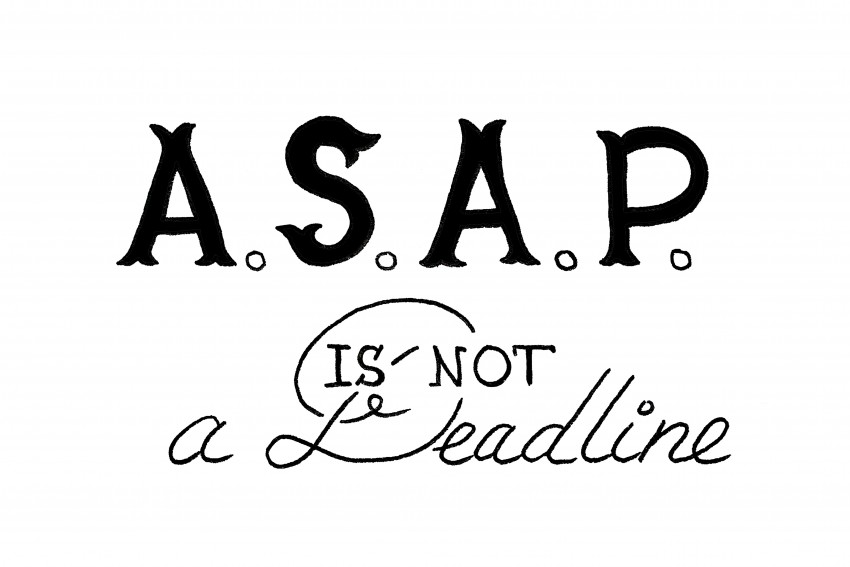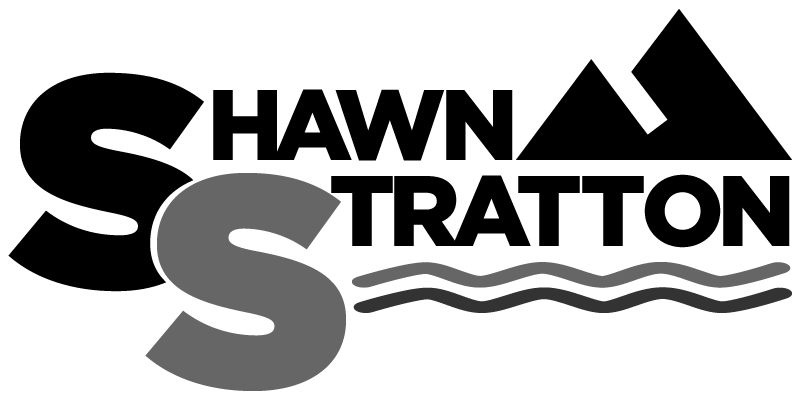
by Shawn Stratton | Dec 22, 2017 | Blog Posts
Hi folks, I am back to wish you a Merry Christmas, Happy Holiday and provide you with a tool to kick-start your success in 2018. I have had a productive few weeks off from writing my regular blog. I have been able to find some help to free up time and develop systems for me to be the best version of Shawn as a father, husband, business consultant and athlete. My next book manuscript is now oh-so-close to being finished and I have been developing a few very exciting projects that will launch in the New Year to bring more value to YOU, my faithful blog reader. One of the projects I will be launching is an exclusive small group Mastermind focused on accountability, personal growth, and leadership development. You will hear more about this in a few weeks. If you know you are interested in joining this type of group just send me an email at info@livemoregroup.com with “INTERESTED IN THE MASTERMIND” as the subject title and I will be sure you receive the registration information. This past week I was working on my 2018 list of goals. This is something I do every December but as I was writing them I was thinking how each year it seems harder and harder to set realistic yearly goals with the SMART (Specific, Measurable, Attainable, Realistic, Timely) method of goal setting. In my current state of rapid change with family, personal and business interests and demands it is difficult to set accurate goals a year out. Too often, elements in my world change throughout the year making many of my...

by Shawn Stratton | Nov 13, 2017 | Blog Posts
I am going to stop blogging on a regular basis for the next couple months. I know I don’t need to justify my personal actions to you but I thought that by explaining them, you may learn something or look at your own life from a different perspective. In his outstanding book, The One Thing: The Surprisingly Simple Truth Behind Extraordinary Results, author, and real estate giant Gary Keller encourages the reader to think of work-life balance not as being balanced at all. He would rather think of your time and attention sitting on a pendulum moving back and forth. For a while, you really need to focus on one area of your life, i.e. family, and then there will be a time your family life is stable and you can really focus on another aspect, i.e. starting a new business project, training for a marathon or in my case right now, completing a book. I have been two weeks from finishing my next book since June because I haven’t made it my One Thing. My personal view of balance is an object suspended in time, not moving at all. When things aren’t moving at all, they usually get run over and besides if you are in perfect balance, you are not moving forward and for me, I always want to be moving forward. This is also the reason why Lance Armstrong called his hugely popular podcast The Forward. This is not acceptable to me. For me to be at my best, I want to be riding the wave or at least climbing near the top of it. I may...

by Shawn Stratton | Oct 30, 2017 | Blog Posts
How to prevent your meeting from going off the rails The purpose of meetings is not to talk – the purpose is to arrive at ideas, solutions, plans, and decisions. Before I discuss meeting agendas, I want you to think long and hard about the next meeting you are organizing. Ask yourself these 3 questions Is this meeting absolutely needing? Is there another way to accomplish the meeting purpose? What will happen if the meeting doesn’t take place? If at all possible, cancel the meeting! We’ve all been in meetings where participants are unprepared, people veer off-track, and the topics discussed are a waste of the team’s time. These problems, and others like it, stem from poor agenda design. An effective agenda helps set you up to run a successful meeting for all participants. Last week, I had the privilege of delivering a webinar to 1000 project managers from around the world. When I asked in a poll “what is your greatest pain point in meetings”, the number one answer by far was “lack of quality agenda and direction”. At the end of the session, several of the audience questions were about creating effective agendas so I have decided to write this post to help you develop and execute an effective agenda for your next meeting. According to a study conducted by Verizon Business, meetings are the #1 time waster in the workplace. They are often unorganized, have no purpose and go off-topic and end with decisions or action items. It’s no mistake that most of these meetings are missing a clear meeting agenda. Creating a concise agenda is the...

by Shawn Stratton | Oct 13, 2017 | Blog Posts
Do you have a good friend at work? Chances are if you work in a team environment and enjoy your job, you work with someone you would consider a good friend. It doesn’t matter if you are an introvert or extrovert, humans are social animals and having work friends is important to your overall happiness Research by Gallup suggests the development of trusting relationships is a significant emotional compensation for employees in today’s marketplace. Too often, millennials are criticized for blurring the lines between work relationships and personal relationships. Given the always tuned on social media and always in pocket smart phone world that they have grown up in it increases the challenge for them to compartmentalize their relationships… and that’s a good thing. While companies often pay significant attention to satisfaction surveys, including loyalty toward the organization, the best employers recognize that loyalty also exists among employees toward one another. Based on their research, Gallup believes “The best managers in the world observe that the quality and depth of employees’ relationships is a critical component of employee loyalty.” So, how is a manager supposed to go about creating best friends forever (BFF) among their workforce? Certainly, a close friendship can never be formed from a forced experience. Most quality friendships develop organically, as people invest little-premeditated thought in the process. When you think about your close friends today, for most of them, you didn’t set out with a focus on becoming their friend. The good news is there are several things managers can do to help foster significant relationship building without making it feel contrived and forced. One...

by Shawn Stratton | Sep 29, 2017 | Blog Posts
“Commitment means staying loyal to what you said you would do long after the mood you said it in has left you” unknown Have you have ever had the same goal month after month, year after year? I know, there are a few that I have. Hit a sales target, achieve a promotion, lose weight, get more sleep, go on an epic vacation, run an ultramarathon etc. Why is this? If it is an important goal, why are you not achieving it? To experience growth and move forward in life your goals need to be evolving. Even if you have the same massive or BHAG (Big Hairy Audacious Goal) goal every year, i.e. win the championship, become #1 in your field, etc., your actions need to change because with our evolving world “what got you there this year won’t get you there next year”. In the rare case that you are successful and things to stay the same, there is a good chance you will end up bored, burnt out and not growing as a person. I found myself in this situation the last few years I was leading expeditions. I had been successful with running life impacting adventures and educational expeditions. I had honed a formula over the years that worked well. But this lack of evolving goals in my job eventually led me to complacency and burnout. Contrary to popular belief, the key to goal achievement is not writing it down or telling someone, although it can help. The key really is taking action. Furthermore, it’s about making a commitment to sacrifice. I am interested in your...

by Shawn Stratton | Sep 15, 2017 | Blog Posts
(Quick update – After leaving England at the end of July, the Strattons spent the next 5 weeks visiting family and friends throughout Canada and are now set up in Ottawa for the foreseeable future. LiveMore HQ is now up and running and I am back to providing you with regular quality original leadership content here on my blog.) At Work, Are You Leading A Family Or A Sports Team? You often hear people refer to their work teams as a family. Is this what you really want? Have you taken a close look at your family and your feelings about each person?If you are like me, you love everyone in your family unconditionally. Through all the childhood (and adult) fights, your pet peeves with them, your differences, the advice they didn’t take, the advice they didn’t give until it was too late, and the mistakes they have made, and through all the trials and tribulations that life throws at them, I will still love them because…well, they are family. I love them and always will. With family, there is no bottom-line. A competitive sports team, on the other hand, most certainly has a bottom-line. In the past, I have written about the importance for leaders to love their team but not unconditionally. Sure, love them and also do everything in your power to have them performing at a high level to achieve your common goal but hold them to a high level of accountability at the same time. If a player on the sports team repeatedly makes mistakes, doesn’t show up on time, or calls out other players in...
by Shawn Stratton | Sep 2, 2017 | Blog Posts
(Note – this is a 2017 summer addition ‘best of the best’ blog from the past.) You’ve heard the expressions “I’m so busy,” “I’m too busy to do that,” or “I just can’t find the time …” I believe that these phrases have caused an epidemic of excuses in our society. It has become a sign of prestige to say how busy you are when someone asks, “How are things?” When was the last time you answered that question with “Things are pretty slow right now” or “Fantastic, I’m spending my time on things most important to me”? The reality is you are never too busy to do anything. You spend our time on what seems to be the most important thing to you right now. Think about the last time you told someone you were too busy to do something. I’m willing to bet you weren’t too busy at all; you just placed a lower priority on the task you were talking about than the one that was filling your time. An honest response would have been, “I’m sorry but that isn’t a high priority for me right now and I have other tasks that are more important to me taking up my time.” That brings us to the priority list. A priority list allows you to rank the importance of the tasks, which fill your time. I love writing these lists (and thinking about them even more) and ranking them so that I always know what I should be doing with my time. You are what you did today. (Tweet That) Sure, you have long-range hopes, dreams,...

by Shawn Stratton | Aug 18, 2017 | Blog Posts
(Note – this is a 2017 summer addition ‘best of the best’ blog from the archive.) Leaders Prioritize – Leaders Respond Recently, a friend was in some slow moving employment contract negotiations. There was no animosity and both sides were excited that the contract was offered. After the initial flurry of emails that led to the offer, the employer became very slow to respond to emails when the fine-tuning negotiating started. The employer would send an email. My friend would respond in a few hours and then days would go by before she would hear back from them. It turns out, most of the time, the gentleman representing the employer was travelling or waiting for more information before getting back to her. Both are perfectly normal reasons for not having a decision right away but no excuse for not sending a short email, letting her know why he couldn’t provide the decision in a timely manner. In the silence, my friend was growing more and more stressed that the employer was going to back out of the contract. In reality, that was not the case at all. In the end, it all worked out but in the process, considerable time and energy, and a little respect were lost. Had the employer acknowledged the receipt of the corresponding emails and either responded with an answer or mentioned when he would get back with a proper response, the trust and respect level would have remained high while eliminating unnecessary anxiety. If he could not write a complete answer to the email in an appropriate time, a simple one-line explanation why and...

by Shawn Stratton | Aug 4, 2017 | Blog Posts
(Note – this is a 2017 summer addition ‘best of the best’ blog from the archive.) In today’s outsourcing, downsizing, volatile economy, people are more worried than ever about losing their job, no matter the position they hold. Here is one way to make it less likely you will lose your job and even if you do, this practice will greatly help you move on to your next job or a freelance career. The late, great personal development expert, Zig Zigular, famously said “You will get all you want in life, if you help enough other people get what they want.” Too often, we find ourselves living in the world of ME, with constant thoughts of how is this going to help ME, what have they done for ME, and I need to cover my ass so it doesn’t affect ME. Well, I am here to tell you, you are not as important as you want to believe. So, stop worrying about ME and focus on how you can help others. By shifting your thoughts and subsequent actions to always look for a way to help others, you start making yourself indispensable. You can even learn a great deal along the way. By constantly helping those above you get what they want, they will directly see the value you offer and become an advocate for you, potentially defending your position when the next downsizing rotation comes around. You are providing them support in order to earn your way up. This is fine because you are earning it! Think of everything you do for others as an investment in your...

by Shawn Stratton | Jul 14, 2017 | Blog Posts
Before I get to this weeks post I thought I would let you know daughter #3 finally did come into this world last Sunday, July 9. Here is Aspen Stratton in her 2-day old passport photo. (Note – this is a 2017 summer addition ‘best of the best’ blog from the archive.) When pride is present at work, it inspires individuals and teams to achieve more, communicate better, and build upon each other’s strengths. When it’s not present, it can get ugly, really ugly. Most successful teams carry a high level of pride to the work they do and whom they do it with. But as a leader, how do you create pride within a team. Surely it is not a given any time a team forms to take on a significant goal. Pride for a team or organization has to deliberately be developed and massaged by the leadership. It comes from a conscious effort and genuine love of the team and its purpose. Pride helps people enthusiastically do their job and get through hard times. I always saw that developing pride within an expedition team was an integral part of my role as an expedition leader. During the extended backcountry expeditions I led, I would be getting my clients and students to regularly push their comfort zone mentally and physically while challenging their tolerance for adversity and uncertainty. No, these moments didn’t happen every day but when they did come about I needed the team members to feel the pride in what they were trying to accomplish and who they were doing it with to launch themselves...
















